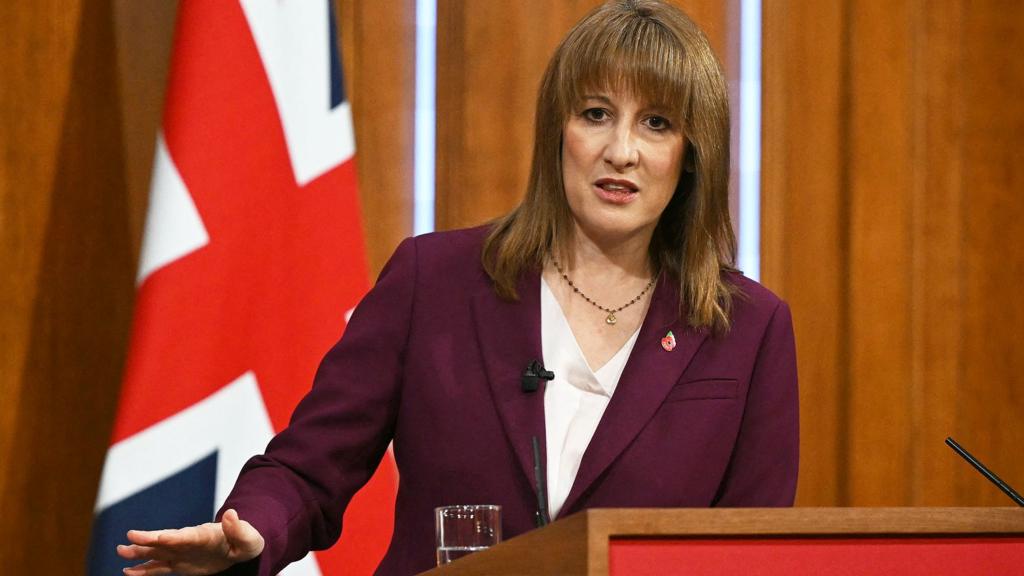UK government borrowing costs have experienced a notable surge following reports that the Chancellor of the Exchequer has opted against raising income tax rates in the upcoming Budget.
The yield on 10-year government bonds, a key indicator of borrowing costs, climbed from 4.44% to 4.56% in early trading, reflecting the potential expense for the government if it chooses to borrow over this period.
This increase in yields signals concerns within financial markets regarding the government’s ability to meet its spending and borrowing obligations without an increase in income tax.
While yields subsequently eased after news emerged that the government’s financial shortfall might be less than initially projected, they edged back up to 4.57% by Friday evening.
Sources at the BBC indicate that the Chancellor has decided not to proceed with a previously considered proposal to raise income tax rates by 2p while simultaneously cutting National Insurance by the same amount. This decision follows a more favorable forecast from the Office for Budget Responsibility (OBR).
The measure, which would have potentially breached manifesto commitments, was submitted to the OBR earlier in the month as a costing option to address a £30 billion gap in public finances, primarily due to a downgrade in productivity.
However, recent OBR assessments appear to project stronger wage growth and tax revenues in the coming years, reducing the financial gap to approximately £20 billion.
Gilt markets responded sharply on Friday morning to a report in the Financial Times regarding the Chancellor’s decision to abandon the tax plan. Although markets stabilized somewhat following the revised OBR forecast, gilt yields, after hovering around 4.53% in the afternoon, concluded the trading day higher than their opening levels.
UK gilts have generally declined in value in recent weeks amid rising expectations of lower interest rates.
Ruth Curtice, chief executive of the Resolution Foundation, which originally proposed the income tax and National Insurance adjustment, suggested the Budget speculation could exacerbate market volatility.
“It is normal for economic forecasts and policies to change in the run up to the Budget. It is not normal for so much of that to be laid bare in public,” she stated.
“The market moves this morning and in recent weeks suggest a serious look should be taken at the approach to market-sensitive forecast information.”
AJ Bell investment director Russ Mould noted that Rachel Reeves had maintained financial market confidence by emphasizing the need to address the “fiscal black hole.” However, he added that ruling out income tax increases might raise concerns among bond market investors about her ability to achieve this.
Oxford Economics’ chief UK economist Andrew Goodwin indicated that the Budget will serve as a test of market confidence in the government’s financial strategy.
“Smaller tax rises to tackle an apparently smaller problem aren’t a good idea if markets don’t believe the OBR’s forecast is credible,” he said.
He cautioned that the OBR’s growth forecasts have historically been overly optimistic, and relying heavily on them for Budget plans would be “risky.”
“There’s a good chance that markets would conclude the problems aren’t resolved and the government will be back in the same situation at the next fiscal event.”
A Treasury spokesperson stated: “We do not comment on speculation around changes to tax outside of fiscal events. The Chancellor will deliver a Budget that takes the fair choices to build strong foundations to secure Britain’s future.”
Reeves has previously affirmed that both tax increases and spending cuts are under consideration for the Budget. The Chancellor is tasked with identifying additional funds to meet her self-imposed, “non-negotiable” fiscal rules.
The two primary rules are:
Speaking prior to reports of the improved OBR forecasts, Zeina Bain, managing partner at Sullivan Street Partners, noted that investors had anticipated an income tax increase in the Budget, making reports of the Chancellor’s change of heart “a bit of a surprise.”
Ms. Bain added that the other primary concern for investors revolves around how the government intends to address its Budget deficit.
“Are you going to renege on filling that hole and fiscal responsibility?” she asked on the BBC’s Today programme.
“That then leads into lower confidence which then feeds into higher bond yields, which then feeds into the cost of borrowing which leads to an even bigger hole.”
Some experts think the government may break its promise not to increase income tax, NI or VAT for working people.
Chancellor Rachel Reeves has fuelled speculation that she could announce an increase in the Autumn Budget.
The first minister was urged to give a “cast-iron” guarantee that he would not increase rates in the Budget.
Those who fail to file their personal income tax returns by the 6 October deadline face a £100 fine.
Revenue staff are offering help to complete tax returns before the November filing deadline.

